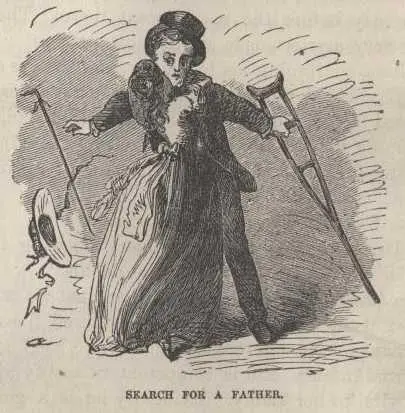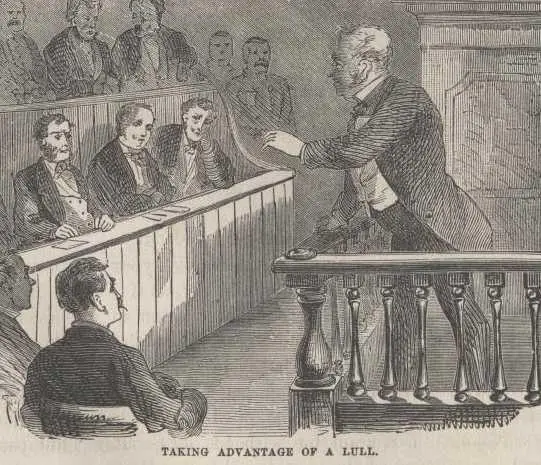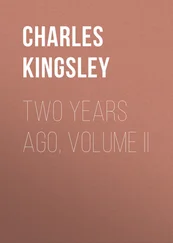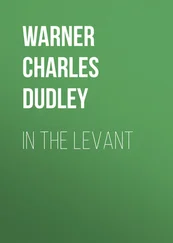Charles Warner - The Gilded Age / A tale of today
Здесь есть возможность читать онлайн «Charles Warner - The Gilded Age / A tale of today» весь текст электронной книги совершенно бесплатно (целиком полную версию без сокращений). В некоторых случаях можно слушать аудио, скачать через торрент в формате fb2 и присутствует краткое содержание. Год выпуска: 2004, Жанр: Классическая проза, на английском языке. Описание произведения, (предисловие) а так же отзывы посетителей доступны на портале библиотеки ЛибКат.
- Название:The Gilded Age / A tale of today
- Автор:
- Жанр:
- Год:2004
- ISBN:нет данных
- Рейтинг книги:3 / 5. Голосов: 1
-
Избранное:Добавить в избранное
- Отзывы:
-
Ваша оценка:
- 60
- 1
- 2
- 3
- 4
- 5
The Gilded Age / A tale of today: краткое содержание, описание и аннотация
Предлагаем к чтению аннотацию, описание, краткое содержание или предисловие (зависит от того, что написал сам автор книги «The Gilded Age / A tale of today»). Если вы не нашли необходимую информацию о книге — напишите в комментариях, мы постараемся отыскать её.
The Gilded Age / A tale of today — читать онлайн бесплатно полную книгу (весь текст) целиком
Ниже представлен текст книги, разбитый по страницам. Система сохранения места последней прочитанной страницы, позволяет с удобством читать онлайн бесплатно книгу «The Gilded Age / A tale of today», без необходимости каждый раз заново искать на чём Вы остановились. Поставьте закладку, и сможете в любой момент перейти на страницу, на которой закончили чтение.
Интервал:
Закладка:

Once she found a man with a scar on his forehead and she was just going to throw herself into his arms, but he stepped out just then, and there wasn't anything the matter with his legs. Time and time again, gentlemen of the jury, has this poor suffering orphan flung herself on her knees with all her heart's gratitude in her eyes before some scarred and crippled veteran, but always, always to be disappointed, always to be plunged into new despair—if his legs were right his scar was wrong, if his scar was right his legs were wrong. Never could find a man that would fill the bill. Gentlemen of the jury; you have hearts, you have feelings, you have warm human sympathies; you can feel for this poor suffering child. Gentlemen of the jury, if I had time, if I had the opportunity, if I might be permitted to go on and tell you the thousands and thousands and thousands of mutilated strangers this poor girl has started out of cover, and hunted from city to city, from state to state, from continent to continent, till she has run them down and found they wan't the ones; I know your hearts—"
By this time the Colonel had become so warmed up, that his voice, had reached a pitch above that of the contending counsel; the lawyers suddenly stopped, and they and the Judge turned towards the Colonel and remained for several seconds too surprised at this novel exhibition to speak. In this interval of silence, an appreciation of the situation gradually stole over the audience, and an explosion of laughter followed, in which even the Court and the bar could hardly keep from joining.

Sheriff. "Order in the Court."
The Judge. "The witness will confine his remarks to answers to questions."
The Colonel turned courteously to the Judge and said,
"Certainly, your Honor—certainly. I am not well acquainted with the forms of procedure in the courts of New York, but in the West, sir, in the West—"
The Judge. "There, there, that will do, that will do!"
"You see, your Honor, there were no questions asked me, and I thought I would take advantage of the lull in the proceedings to explain to the jury a very significant train of—"
The Judge. "That will DO sir! Proceed Mr. Braham."
"Col. Sellers, have you any reason to suppose that this man is still living?"
"Every reason, sir, every reason.
"State why"
"I have never heard of his death, sir. It has never come to my knowledge. In fact, sir, as I once said to Governor—"
"Will you state to the jury what has been the effect of the knowledge of this wandering and evidently unsettled being, supposed to be her father, upon the mind of Miss Hawkins for so many years!"
Question objected to. Question ruled out.
Cross-examined. "Major Sellers, what is your occupation?"
The Colonel looked about him loftily, as if casting in his mind what would be the proper occupation of a person of such multifarious interests and then said with dignity:
"A gentleman, sir. My father used to always say, sir"—
"Capt. Sellers, did you ever see this man, this supposed father?"
"No, Sir. But upon one occasion, old Senator Thompson said to me, its my opinion, Colonel Sellers"—
"Did you ever see any body who had seen him?"
"No, sir: It was reported around at one time, that"—
"That is all."
The defense then spent a day in the examination of medical experts in insanity who testified, on the evidence heard, that sufficient causes had occurred to produce an insane mind in the prisoner. Numerous cases were cited to sustain this opinion. There was such a thing as momentary insanity, in which the person, otherwise rational to all appearances, was for the time actually bereft of reason, and not responsible for his acts. The causes of this momentary possession could often be found in the person's life. [It afterwards came out that the chief expert for the defense, was paid a thousand dollars for looking into the case.]
The prosecution consumed another day in the examination of experts refuting the notion of insanity. These causes might have produced insanity, but there was no evidence that they have produced it in this case, or that the prisoner was not at the time of the commission of the crime in full possession of her ordinary faculties.
The trial had now lasted two weeks. It required four days now for the lawyers to "sum up." These arguments of the counsel were very important to their friends, and greatly enhanced their reputation at the bar but they have small interest to us. Mr. Braham in his closing speech surpassed himself; his effort is still remembered as the greatest in the criminal annals of New York.
Mr. Braham re-drew for the jury the picture of Laura's early life; he dwelt long upon that painful episode of the pretended marriage and the desertion. Col. Selby, he said, belonged, gentlemen; to what is called the "upper classes." It is the privilege of the "upper classes" to prey upon the sons and daughters of the people. The Hawkins family, though allied to the best blood of the South, were at the time in humble circumstances. He commented upon her parentage. Perhaps her agonized father, in his intervals of sanity, was still searching for his lost daughter. Would he one day hear that she had died a felon's death? Society had pursued her, fate had pursued her, and in a moment of delirium she had turned and defied fate and society. He dwelt upon the admission of base wrong in Col. Selby's dying statement. He drew a vivid picture of the villain at last overtaken by the vengeance of Heaven. Would the jury say that this retributive justice, inflicted by an outraged, and deluded woman, rendered irrational by the most cruel wrongs, was in the nature of a foul, premeditated murder? "Gentlemen; it is enough for me to look upon the life of this most beautiful and accomplished of her sex, blasted by the heartless villainy of man, without seeing, at the end of it; the horrible spectacle of a gibbet. Gentlemen, we are all human, we have all sinned, we all have need of mercy. But I do not ask mercy of you who are the guardians of society and of the poor waifs, its sometimes wronged victims; I ask only that justice which you and I shall need in that last, dreadful hour, when death will be robbed of half its terrors if we can reflect that we have never wronged a human being. Gentlemen, the life of this lovely and once happy girl, this now stricken woman, is in your hands."
The jury were visibly affected. Half the court room was in tears. If a vote of both spectators and jury could have been taken then, the verdict would have been, "let her go, she has suffered enough."
But the district attorney had the closing argument. Calmly and without malice or excitement he reviewed the testimony. As the cold facts were unrolled, fear settled upon the listeners. There was no escape from the murder or its premeditation. Laura's character as a lobbyist in Washington which had been made to appear incidentally in the evidence was also against her: the whole body of the testimony of the defense was shown to be irrelevant, introduced only to excite sympathy, and not giving a color of probability to the absurd supposition of insanity. The attorney then dwelt upon the insecurity of life in the city, and the growing immunity with which women committed murders. Mr. McFlinn made a very able speech; convincing the reason without touching the feelings.
The Judge in his charge reviewed the testimony with great show of impartiality. He ended by saying that the verdict must be acquittal or murder in the first degree. If you find that the prisoner committed a homicide, in possession of her reason and with premeditation, your verdict will be accordingly. If you find she was not in her right mind, that she was the victim of insanity, hereditary or momentary, as it has been explained, your verdict will take that into account.
Читать дальшеИнтервал:
Закладка:
Похожие книги на «The Gilded Age / A tale of today»
Представляем Вашему вниманию похожие книги на «The Gilded Age / A tale of today» списком для выбора. Мы отобрали схожую по названию и смыслу литературу в надежде предоставить читателям больше вариантов отыскать новые, интересные, ещё непрочитанные произведения.
Обсуждение, отзывы о книге «The Gilded Age / A tale of today» и просто собственные мнения читателей. Оставьте ваши комментарии, напишите, что Вы думаете о произведении, его смысле или главных героях. Укажите что конкретно понравилось, а что нет, и почему Вы так считаете.












